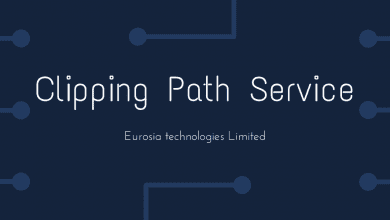Exploring Blockchain’s Role in the Metaverse and Web 3.0

Blockchain technology has emerged as a game-changing innovation, reshaping industries and enabling new digital paradigms. The rise of the Metaverse and Web 3.0 marks a shift towards a decentralized, immersive, and user-driven digital future. At the heart of these advancements lies blockchain technology, empowering everything from secure virtual transactions to decentralized governance. As businesses and developers push boundaries, blockchain development companies are becoming key players in building reliable solutions to support these emerging technologies.
Blockchain’s Role in the Metaverse
The Metaverse refers to a collective virtual environment where individuals can interact, socialize, play, and conduct transactions. Blockchain enhances the Metaverse by enabling trust, ownership, and economic activities in these digital spaces.
1. Facilitating Ownership with NFTs
Non-Fungible Tokens (NFTs) are a cornerstone of the Metaverse. Blockchain allows the creation of NFTs, which act as digital certificates of ownership.
- What are NFTs? NFTs are unique tokens representing assets such as virtual real estate, art, gaming items, or collectibles.
- How it works: NFTs are stored on the blockchain, ensuring each asset is authentic, unique, and tamper-proof.
- Significance: In the Metaverse, NFTs enable users to buy and sell virtual assets, providing real ownership and control over digital property.
For instance, platforms like Decentraland and The Sandbox allow users to purchase virtual real estate as NFTs, enabling a thriving virtual economy.
2. Supporting Virtual Transactions
Blockchain powers cryptocurrencies, which act as the primary mode of exchange within the Metaverse. Virtual transactions, including buying land, art, or digital wearables, are facilitated securely and transparently.
- Users transact with decentralized tokens like Bitcoin, Ethereum, or Metaverse-specific tokens like MANA (Decentraland) and SAND (The Sandbox).
- Blockchain ensures these transactions are secure, fast, and immutable.
The use of cryptocurrencies removes intermediaries, making virtual economies in the Metaverse efficient and borderless.
3. Ensuring Trust and Transparency
Trust is crucial in digital ecosystems where users invest in virtual assets. Blockchain provides a transparent, immutable ledger that records all transactions and ownership data.
- Transparency: Every transaction is verifiable on the blockchain, building trust among users.
- Immutability: Once recorded, data on the blockchain cannot be altered, ensuring security and authenticity.
By leveraging blockchain, the Metaverse evolves into a trustless economy, where users can confidently interact and conduct business without centralized authorities.
Key Takeaway: Blockchain transforms the Metaverse into a secure, decentralized, and transparent digital economy where users have true ownership and control.
Blockchain’s Role in Web 3.0
Web 3.0, often termed the “decentralized web,” represents the next generation of the internet. It focuses on user ownership, privacy, and decentralization, all made possible through blockchain technology.
1. Decentralized Data Management
In Web 3.0, blockchain replaces centralized servers with distributed networks, giving users complete control over their data.
- How it works: User data is stored across nodes (computers) on the blockchain, ensuring no single entity owns or controls it.
- Privacy benefits: Individuals have sovereignty over their personal data, reducing the risk of misuse by corporations.
Platforms like IPFS (InterPlanetary File System) and blockchain-based browsers like Brave are early examples of decentralized data management in Web 3.0.
2. Enhancing Security and Privacy
Blockchain’s cryptographic security protects user data from breaches and cyber threats. Unlike traditional systems that rely on centralized databases, blockchain makes data tamper-proof and private.
- Security: Data stored on the blockchain is encrypted and immutable.
- Privacy: Users can interact on Web 3.0 platforms without compromising their personal information.
For example, Zero-Knowledge Proofs enable users to verify transactions without revealing sensitive data, ensuring both privacy and security.
3. Smart Contracts and DApps
Smart contracts are self-executing agreements stored on the blockchain, which automate processes without intermediaries. Decentralized Applications (DApps) leverage smart contracts to provide secure, transparent, and efficient services.
- Smart Contracts: Automate tasks like transactions, agreements, and governance, reducing reliance on centralized authorities.
- DApps: Function as blockchain-based alternatives to traditional applications, ensuring transparency and security.
Examples of DApps in Web 3.0 include decentralized finance (DeFi) platforms like Uniswap and decentralized social networks like Minds.
Key Takeaway: Blockchain empowers Web 3.0 by enabling decentralized data management, enhancing security, and automating processes through smart contracts, resulting in a transparent and user-controlled internet.
Why Blockchain Matters for the Metaverse and Web 3.0
Blockchain is the foundation of both the Metaverse and Web 3.0 because it addresses the limitations of centralized systems:
- Decentralization: Removes intermediaries, ensuring peer-to-peer transactions and interactions.
- Security: Protects digital assets and data with cryptographic encryption.
- Transparency: Builds trust by recording all activities on a tamper-proof ledger.
- User Control: Empowers individuals to own and manage their data and assets.
Blockchain bridges the gap between the virtual and decentralized worlds, enabling secure interactions and economies in the Metaverse while ensuring privacy and user control in Web 3.0.
How Blockchain Development Companies Drive Innovation
Blockchain development companies in India play a pivotal role in integrating blockchain solutions into the Metaverse and Web 3.0. They offer:
- Custom Blockchain Development:
Creating private and public blockchains to meet specific project needs. - NFT Marketplace Development:
Building platforms for trading NFTs, which are integral to the Metaverse. - DApp and Smart Contract Development:
Developing decentralized applications and automating processes using smart contracts.
Leading blockchain development company are driving innovation by delivering scalable and secure solutions, empowering businesses to enter the Metaverse and Web 3.0 era seamlessly.
Top Blockchain Technologies Powering Metaverse and Web 3.0
The success of the Metaverse and Web 3.0 heavily relies on robust blockchain technologies. Several platforms have emerged as key players, powering decentralized ecosystems and enabling innovation:
- Ethereum
- Ethereum is the most popular blockchain for building smart contracts and DApps.
- It supports NFTs, which are crucial for digital ownership in the Metaverse.
- Ethereum 2.0 introduces scalability and energy efficiency through its shift to a Proof-of-Stake (PoS) model.
- Solana
- Known for its high transaction speeds and low fees, Solana is ideal for scaling Metaverse applications.
- It supports gaming platforms, virtual marketplaces, and NFT-based projects.
- Binance Smart Chain (BSC)
- BSC offers low-cost transactions and supports decentralized applications.
- It is increasingly used for NFT trading platforms and DeFi solutions within Web 3.0.
- Layer 2 Solutions
- Layer 2 networks like Polygon help address scalability challenges by processing transactions off-chain while retaining security from the main blockchain.
These technologies are at the forefront of driving decentralized solutions, enabling the Metaverse and Web 3.0 to thrive.
Conclusion
Blockchain technology is the backbone of the Metaverse and Web 3.0, driving innovation and enabling decentralized, secure, and transparent ecosystems. By providing digital ownership through NFTs, seamless virtual transactions, and trustless environments, blockchain empowers creators, businesses, and users to participate in the digital revolution.
Blockchain development companies play a key role in building and scaling these solutions, developing DApps, NFT marketplaces, and custom blockchain platforms to meet growing demands. While challenges like scalability and interoperability exist, advancements in blockchain technology are addressing these hurdles, ensuring a bright future for the Metaverse and Web 3.0.
The integration of blockchain into virtual worlds and decentralized internet is not just a trend—it’s a fundamental shift towards a borderless and democratized digital future.
FAQs
- What is blockchain’s role in the Metaverse?
Blockchain enables secure transactions, digital ownership through NFTs, and trustless environments, making the Metaverse functional and transparent.
- How does Web 3.0 differ from Web 2.0?
Web 3.0 focuses on decentralization, user ownership, and blockchain-powered transparency, unlike Web 2.0, which relies on centralized platforms.
- Why are NFTs important for the Metaverse?
NFTs verify digital ownership of assets like virtual real estate, art, and in-game items, enabling a functioning virtual economy.
- What are some real-world examples of blockchain in Web 3.0?
Examples include decentralized finance (DeFi), supply chain management, and tokenized real-world assets powered by blockchain.
- How can a blockchain development company help businesses?
Blockchain development companies build tailored solutions, including NFT marketplaces, smart contracts, and decentralized applications, enabling businesses to leverage blockchain technology effectively.





